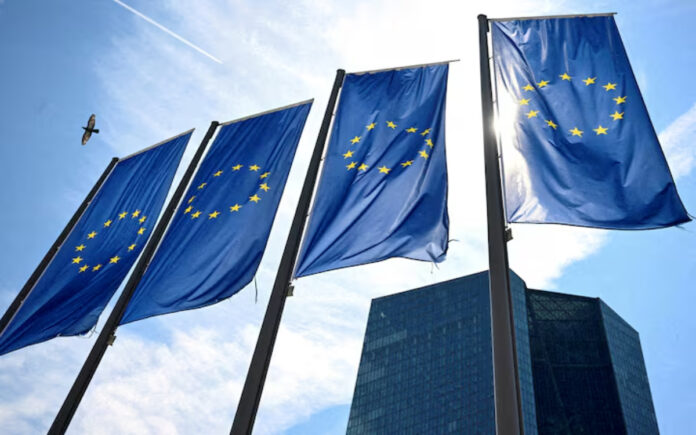Brussels: The European Commission has laid out a potential response involving countermeasures worth up to €95 billion ($107.2 billion) in U.S. imports, should ongoing trade talks with Washington fail to eliminate tariffs imposed under former President Donald Trump.
Outlined on Thursday, the proposed measures are designed to mirror the broad scope of U.S. import tariffs, particularly those targeting automobiles, and other “reciprocal” levies. The European Union’s plan includes potential duties on a wide array of U.S. goods, such as wine, bourbon, fish, aircraft, car parts, chemicals, machinery, health products, and electrical equipment.
The Commission, which oversees trade policy for the 27-member bloc, launched a public consultation running through June 10, inviting feedback from member states and affected businesses. Final decisions on the counter-tariffs will follow the consultation and are expected to cover a narrower range of U.S. goods.
“The EU remains fully committed to finding negotiated outcomes with the U.S.,” European Commission President Ursula von der Leyen stated. “At the same time, we continue preparing for all possibilities.”
The EU’s announcement coincided with Trump’s revelation of a trade agreement between the United States and the United Kingdom, the first such deal to partially mitigate the effects of Trump-era tariffs on a major trading partner.
Currently, EU exporters face 25% tariffs on steel, aluminum, and cars entering the U.S., along with “reciprocal” tariffs of 10% on nearly all other goods—an amount that could double to 20% after the expiry of a 90-day pause on July 8.
Although the European Commission has maintained its preference for a negotiated settlement over retaliatory tariffs, it insists on being prepared to act swiftly in July if talks stall. In April, the EU approved tariffs averaging 25% on €21 billion in U.S. imports—including items like maize, motorcycles, wheat, and clothing—as a response to metal tariffs. These tariffs were suspended following Trump’s temporary reprieve.
According to the Commission, current U.S. tariffs affect about €380 billion—or 70%—of EU goods trade with the U.S., a figure that could increase to 97% if Washington extends levies to additional sectors like pharmaceuticals, semiconductors, trucks, and critical minerals. Notably, the EU has refrained from including pharmaceuticals and semiconductors on its proposed countermeasure list.
Businesses are being urged to voice their opinions. A prior consultation in March on EU countermeasures related to metal tariffs drew 660 responses.
Auto Industry Response
BMW, the largest auto exporter from the U.S. by value, declined to comment on the specifics of the EU’s proposal, stating only that it welcomes the discussions and emphasized the importance of “common ground based on free trade.” German automakers such as BMW and Mercedes-Benz collectively produced over 844,000 vehicles in the U.S. last year, roughly half of which were exported, according to the VDA automotive lobby group.
Meanwhile, spiritsEUROPE, the EU spirits industry group, emphasized the importance of tariff-free trade in transatlantic spirits, a framework in place since 1997. It called on both parties to intensify negotiations with the goal of reaching an agreement by early July.
The proposed EU countermeasures are deliberately proportionate and less extensive than the U.S. tariffs, reflecting the bloc’s lower volume of imports from the U.S.—estimated at €335 billion in 2024, compared to €532 billion in EU exports to the United States. EU officials have stressed that the aim is not to escalate tensions but to defend European economic interests with a balanced response.
Although the U.S. holds a trade surplus with the EU in services, Brussels is also exploring export restrictions on €4.4 billion worth of steel scrap and chemical products. Steel scrap, a critical raw material for steelmaking, has not been included in existing U.S. tariffs, raising concerns that it may be sold externally and weaken the EU’s own supply chain.
Additionally, the Commission announced plans to launch a formal complaint with the World Trade Organization over the U.S. tariffs, initiating a process that begins with consultations between both sides.
U.S. Vice President JD Vance said Wednesday that discussions with European partners are ongoing, noting Washington’s continued push for the EU to reduce its own tariffs and regulatory obstacles in an effort to enhance transatlantic trade.



